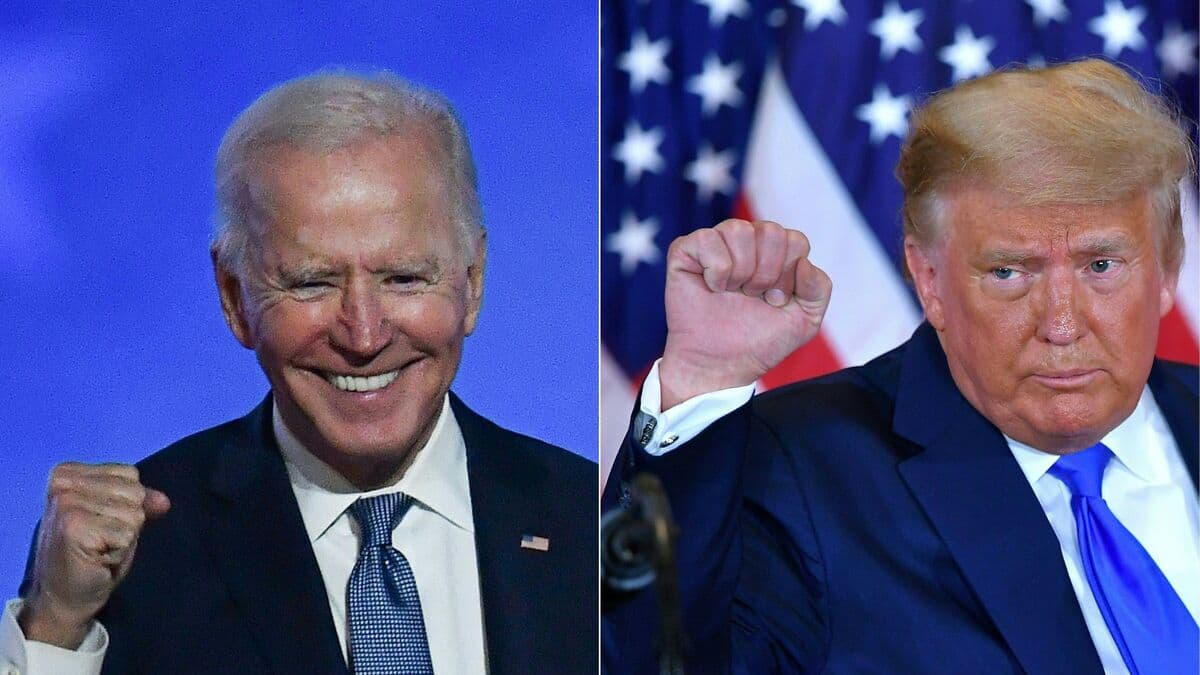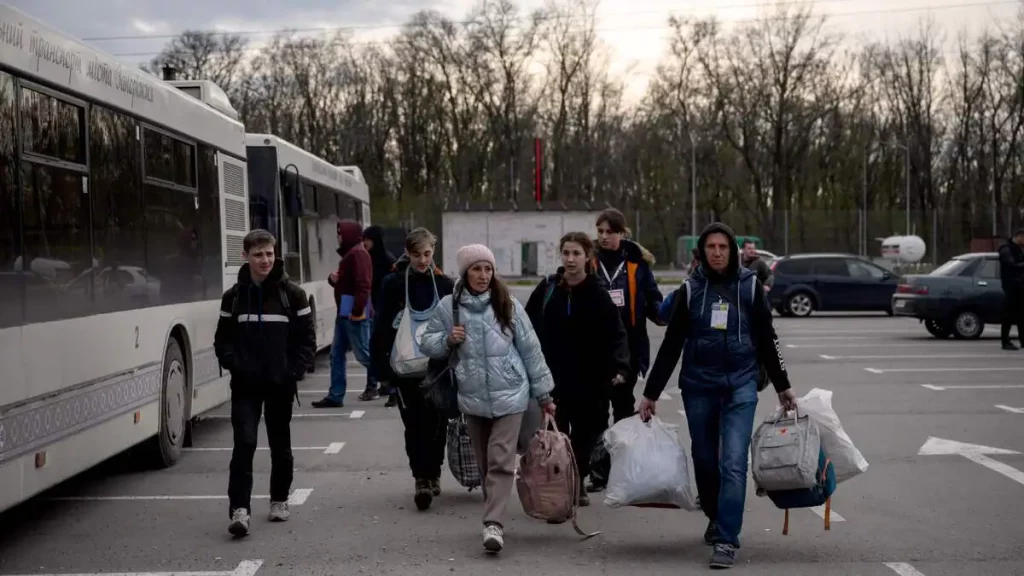On Thursday, they reached the city of Zaporizhia in southeastern Ukraine that is still under the control of Kyiv, numbering 79. Seventy-nine evacuees from Mariupol were martyred by Russian bombs. Many faces were nearly put out after nearly two months of siege.
• Read also: Ukraine: France sends 28 tons of emergency medical aid
• Read also: direct | The 57th day of fighting in Ukraine
• Read also: Putin welcomes the capture of Mariupol but refuses to give the final attack
Disembarking from three yellow school buses, the passengers, many of them women, take the time to recount their journey and the hell they left behind at the main reception center in Zaporizhia – a large white tent erected in the parking lot of a hypermarket.
Like Anastasia (pseudonym), whose steady gaze bears witness to shock. “This evacuation was a show,” the 19-year-old called out, describing the many Russian cameras that filmed the start. We got some attention, but it was only for the media.”
She said the rumor of a possible exit from Mariupol spread around 10 am on Wednesday, while it was announced that humanitarian corridors would open for several days without follow-up.
Ukrainian Deputy Prime Minister Irina Vereshuk, who is in Zaporizhia, protested that “many people who live in the lands occupied by the Russians want to leave, but they are preventing them from doing so.”
Of the expected dozen buses, only three arrived, she says indignantly: “Nothing worked. (…) There was no “green” lane. ”
In Mariupol, the meeting was scheduled for 2:00 in the afternoon.
On her way there, Anastasia remembers hearing “a Russian tank hit a building.” She claims to have seen “several Russian snipers” on the rooftops.
After nearly two months of incessant bombing, only a few candidates have come forward for exile. Seventy-nine people in total, according to Ms. Vereshock, while about 100,000 people still live in the port city.
“People didn’t know if the rumor was true,” Anastasia says.
“In front of the Russian journalists, we were asked who wanted to go to Russia,” said another passenger, an old lady in a beige hat. “No one raised his hand. Let them die!”
Anastasia says that one of the buses, out of four in Mariupol, nonetheless left for Russia, without further indicating how many people got on board.
For the 79 people who arrived in Zaporizhia on Thursday, a more than 24 hour journey began, when three would normally be needed to travel the 225 km between the two cities.
We knew the way, but we didn’t recognize anywhere. We didn’t know if we were going to get to Ukraine. At one point we thought they would take us to Russia,” Anastasia recalls. Inside the cars, “people were desperate.”
The pain finally ends in Zaporizhia. Some burst into tears. Valentina Greenchuk, a young 73-year-old woman in slippers and a black coat with holes, begins to hug and kiss everyone she meets.
“From the first day (from the Mariupol headquarters, editor’s note), we were in the basement (…) it was cold. We prayed to God. I asked him to protect us,” she says, adding that young “non-aggressive” Russian soldiers were extending her Regularly with water and food.
She added that her apartment and her son’s house are now destroyed. She approaches a journalist with whom she wants to be interviewed, takes her wrist and gently hugs her.
Natalia Koval, 46, narrates the first words of “Angel,” a “curly blond” toddler from her building, who said his first words during two months of confinement.
“I don’t want to hear bombing again,” says Tatiana Dorash, 34, who, accompanied by her six-year-old son, longs for a quiet night and a “bed to sleep.”
Anastasia is pregnant after she lost her baby last November. She has not seen her soldier husband since March 14. I haven’t been able to access it since. Weeks later, when Russian soldiers were accused of atrocities, she said little or nothing.
His eyes looked like they were staring in horror. She just left, talking about her husband: “I wish he was alive.”

“Total coffee aficionado. Travel buff. Music ninja. Bacon nerd. Beeraholic.”







More Stories
Biden is laughing and Trump is angry
Canada is losing its luster in the eyes of international workers
When Trump reconnects with DeSantis